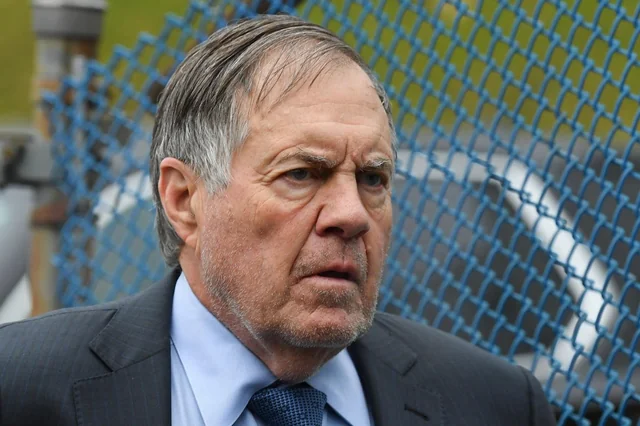A week ago, it appeared imminent that the former head coach of the New England Patriots and widely regarded as one of the greatest coaches in NFL history, Bill Belichick, would be named the head coach of the Atlanta Falcons. Despite flying into Atlanta for a second interview earlier in the week, the expected announcement did not materialize, and I have a strong inclination as to why, drawing parallels to an incident over 30 years ago during my tenure with the New York Giants.

In January 1993, the Giants were in need of a new head coach due to events dating back to May 1991. Following their second Super Bowl win in five years under Hall of Fame coach Bill Parcells, Parcells sought increased control within the organization and a new contract, but when these did not materialize by late April, he resigned abruptly, citing health reasons.
Parcells’ departure in May left General Manager George Young in a challenging position, seeking a new head coach well beyond the usual hiring cycle. With limited options, Young ultimately promoted running backs coach Ray Handley to the head coaching position, a decision that proved to be a mistake over the next two seasons.
After Handley’s dismissal at the end of the 1992 NFL season, the Giants embarked on a new search, with Dan Reeves emerging as a top candidate. Much like Belichick in New England, Reeves had exercised comprehensive control over football operations during his successful tenure with the Denver Broncos. However, when interviewed by the Giants, concerns arose about potential conflicts with the existing organizational structure in New York, where George Young held ultimate authority over football operations.
Reeves reassured both Young and Giants owner Wellington Mara that he could adhere to the established organizational structure and was willing to forego some decision-making authority. In his initial year with the Giants, things went smoothly, but as success ensued, Reeves sought greater control. Over the next two offseasons, conflicts between the personnel department and Reeves, along with the coaching staff, created internal strife within the Giants’ front office.
This historical context is relevant to the situation with Belichick and Atlanta. Similar to Reeves, Belichick had exercised complete control over all football matters in New England, achieving unparalleled success. When Belichick interviewed in Atlanta, the Falcons already had an organizational structure in place, reminiscent of the Giants’ setup in the early 1990s, with team President Rich McKay and General Manager Terry Fontenot overseeing different aspects.
Although there haven’t been public statements regarding Belichick’s demands for accepting the job, rumors suggest he wanted to bring in his own people to control the Personnel Department, mirroring the power he had in New England. The strong relationship between the Giants and the Falcons, particularly between John Mara and Rich McKay, likely played a role. Mara, having experienced the challenges during the Dan Reeves era, may have cautioned McKay about potential organizational conflicts.
Recent reports indicate that trusted advisors of Falcons owner Arthur Blank, including Rich McKay, warned against hiring Belichick unless he was given complete control. However, this was deemed impractical, given McKay’s significant influence not just in Atlanta but also in the league. While this explanation is speculative, it aligns with historical patterns, suggesting that Belichick’s potential appointment as head coach of the Atlanta Falcons could have led to organizational discord, similar to the events in New York 30 years ago.









